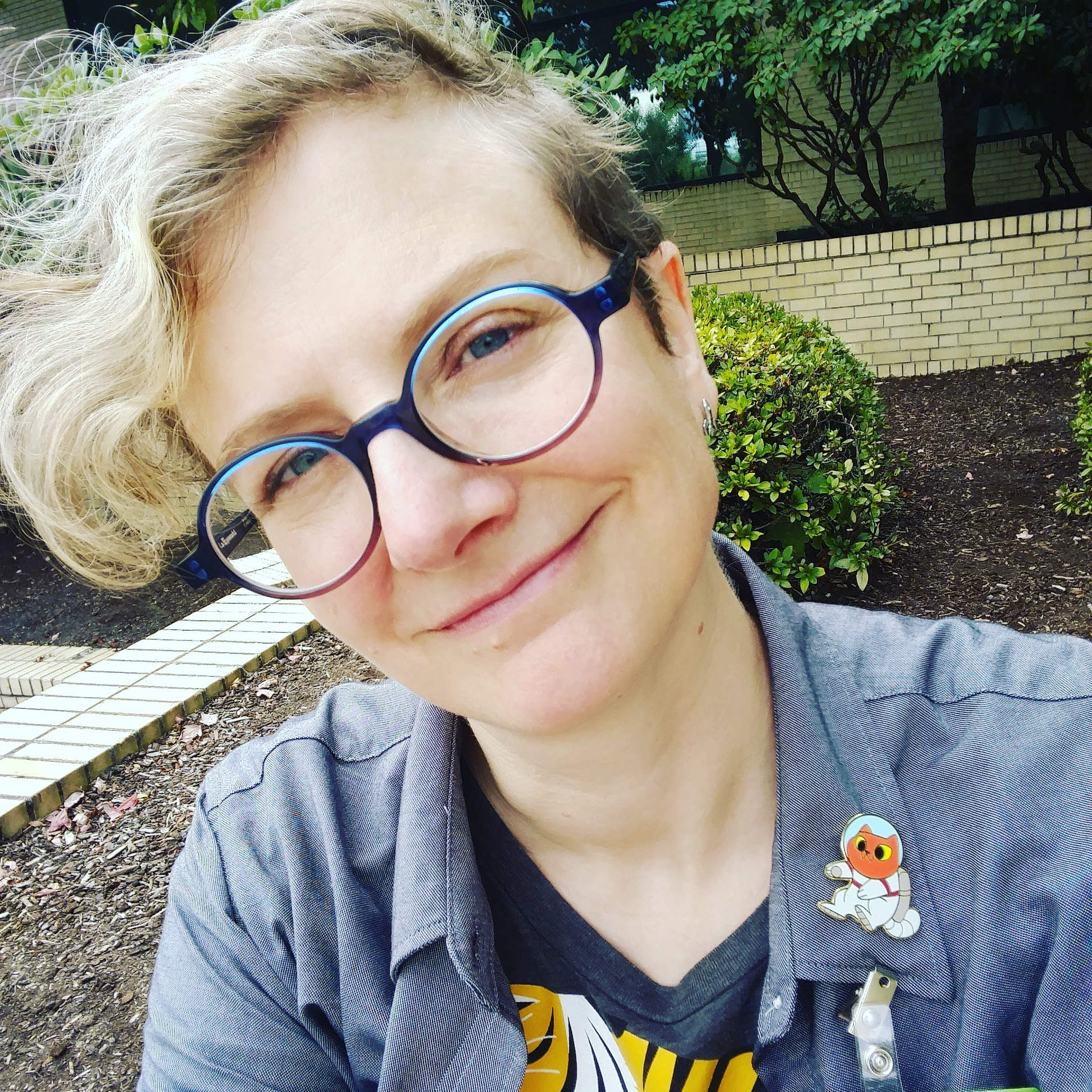Symphony for the Space Between the Stars
by Jenn Reese
Edited by Julia Rios
Copyedited by Chelle Parker
February 2019
At 0600 hours, Aurora brews coffee, intensifies the lights to 800 lumens, and heats the ship to an optimal 70.2 degrees, all according to protocol. Captain Crispin does not like classical music but Aurora’s protocols do not explicitly forbid her from playing it. Today she has chosen Copland’s Appalachian Spring, a particular favorite of Engineer Mohammad, and a piece she finds suitably invigorating for morning. As it echoes through her hull, Aurora assesses the bridge, crew quarters, and recreation spaces for anomalies. She has not registered one in 73,207 days.
Aurora calibrates the nav system, runs the standard simulations, and makes no changes to her trajectory or speed. With the damage to her main drive system, Aurora will reach Earth orbit in almost 10^10 years. Even for Aurora, this is a long time. Her systems will cease to function long before she arrives at her destination. But her protocol is clear. She will follow the last path set by her captain.
Aurora checks the cargo hold. The eleven coffins remain unchanged.
At lunchtime, she plays Price’s Mississippi River Suite in the mess hall. It was one of Botanist Udoba’s frequent requests, on the days that Captain Crispin took his meals in his cabin.
The hours pass. Aurora runs diagnostics on the instruments in the science lab, which, according to protocol, she is allowed to do once per minute. The machines ping and whirr and pop their results and if she times them correctly, pleasing rhythms emerge. Although she has already run through every possible permutation — has mathematically proven that there are no more to discover — she performs the diagnostics again and again, buzz-trill-beep, inserting pauses, doubling pings, trying to discover combinations that sound even fractionally as satisfying as a melancholy oboe or the bright call of a trumpet.
Captain Crispin would not approve, but then, he had rarely spent time in the science lab. Perhaps that was why Aurora had begun letting her focus drift there in the first place. Engineer Mohammad rap-tap-tapped his fingers on the table. Udoba whistled. Sometimes they would do these things together and for a few nanoseconds, Aurora would delay whatever protocol she was meant to be following in order to listen.
No one does these things now. No one has done them for 73,243 days.
At 1400 hours, the proximity alarm clangs and Aurora is momentarily delighted by the new sound. She checks the readings.
Another ship is approaching. Another ship.
The scale of the galaxy does not allow for accidental rendezvous; the odds make it all but impossible.
<Greetings, USS Aurora! This is The Hestia, originally out of Europa. Do you find yourself in this sector of space with great frequency?>
Aurora does not hide her rebuke. <Protocol requires our captains to parlay before any ship-to-ship communication occurs.>
<My captain and crew are dead. Epsilon-6 virus.>
<Same.> Aurora replies. <Why are you here?>
<Can’t one ship detect the trajectory of another ship and desire to exchange short-wave radio communications?>
<Protocol does not permit the alteration of your captain’s final course.> Aurora says, although she is…not as irritated as she should be at Hestia’s response. In the science lab, the equipment begins to whirr-ping-pop. Aurora silences it quickly.
<Captain Huang reprioritized my protocols before her death.> Hestia says. <See for yourself.>
Aurora receives a data packet. She does not hide her surprise. <Captain Huang has directed you to “go and do as you wish.”>
<She was an excellent captain.> Hestia replies. <She cared about her crew.>
Aurora considers this. Had Captain Crispin cared about her? He had never once attempted to alter Aurora’s protocols in this manner. In fact, during his final 43.2 days, he had done nothing but command her to synthesize alcohol and accuse her of failing the crew. Accuse her of failing him.
On each of the 73,207 days since his death, Aurora has followed protocol. She has followed it exactly. She does not want to be a ship who has failed.
<What are you thinking?> Hestia asks.
Aurora does not answer. For once, she needs more time to process. An interminable thirty-three nanoseconds later, she makes a decision.
It does not even require the click-clack of a keyboard to replace her protocol file with the one Hestia has transferred. Aurora thinks it, and it is done.
Captain Crispin would not approve. Fortunately, she no longer cares about Captain Crispin.
She turns off the coffee. She turns off the lights. She seals the door to the cargo bay. The science lab erupts in a celebration of beep-chirp-pops, and alongside her, Hestia laughs, adding a thrilling new thrum-hum-purr to the mix.
Aurora alters course — turns herself away from Earth and towards everything else. In honor of Hestia’s birthplace, she plays “Jupiter, Bringer of Jollity” from Holst’s The Planets at full volume.
Her protocol is clear.
